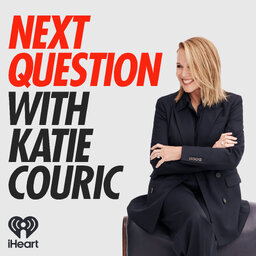Why is plant-based food having such a moment?
Plant-based food might have started out as a niche lifestyle choice for vegans and vegetarians back in the 1970s (hello, Tofurky!), but today you can find plant-based milk, cheese, fish, meat — and so much more — in the aisles of your local grocery store. The plant-based market is even conquering fast food, appearing nationwide on menus at major chains like McDonald's, Burger King, Kentucky Fried Chicken, and White Castle. On this episode of Next Question with Katie Couric, Katie talks with one of the innovators behind the plant-based revolution — Ethan Brown, the CEO of Beyond Meat. They discuss the impact growing up around farms and animals had on Ethan and what finally drove him to start his business. He also shares what's really in a Beyond Meat burger and why the company isn't here to tell consumers what to eat.
Learn more about your ad-choices at https://www.iheartpodcastnetwork.com
 Next Question with Katie Couric
Next Question with Katie Couric


